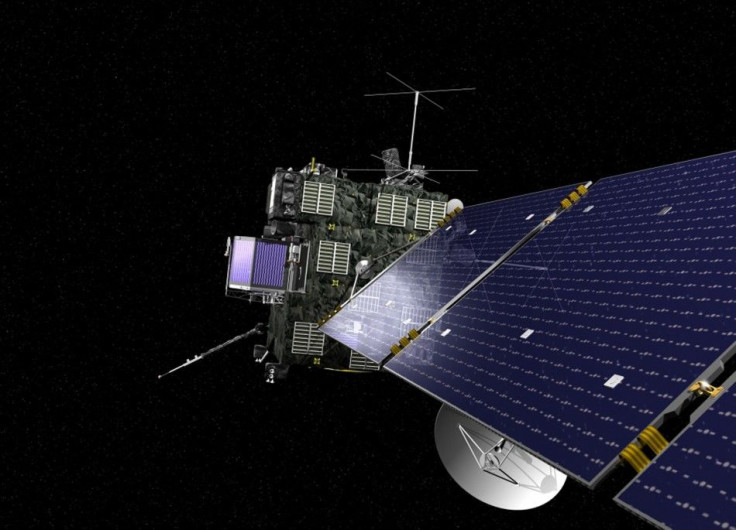Rosetta Finds Water On Comet 67p

The European Space Agency's cometary probe, Rosetta, currently orbiting comet 67p, has recently discovered the presence of water on the comet. The water found on the comet is, however, not similar to that found on earth. This discovery has left scientists nonplussed as to the origin of water on earth. One of the prevailing theories that scientists have previously postulated is that water-bearing comets, crash landing on earth, is how water came to originate on the planet. However, Rosetta's discovery has ruled out that possibility.
Rosetta's Rosina instrument delivered the measurements of the water vapour found coming off the comet 67p. "As soon as we got water from the comet, the pattern changed immediately," said Katherin Altwegg of the University of Bern, Switzerland. Scientists have postulated that the comet's water contains three times more deuterium, a heavier form of the hydrogen compound, than water on earth.
The water found on comets previous to this had deuterium levels that were more similar to water found on earth. However, the higher deuterium levels of comet 67p's water suggests that scientists can nownperhaps no longer rely on the theory that earth's water originated from comets or asteroids that crashed onto the surface of the earth.
Comet 67p is said to have come from the Kuiper Belt, located beyond the planet Neptune. Comets that originate from locations such as the Kuiper Belt have frozen bodies due to their distance from the sun. It may be due to this that some of the comets retain water molecules as well. However, comet 67p's distance from the sun has proved disadvantageous to the scientists at the European Space Agency in one way. Lack of enough sunlight has caused Philae, the probe that landed on the comet in November, to go offline.
Matt Taylor, Rosetta project scientist said, "Once we get the identification of where the lander is, it will give us a better idea of when we would expect the lander to have sufficient illumination to be able to start charging its batteries and come back online." It is expected that when Philae comes back online, the quality of data received will be much higher, thereby making it easier to further study the molecular structure of the water found on comet 67p.
The findings from Rosetta's data has provided information that has so far helped in identifying that simplistic theories of how water came to originate on earth may not be completely reliable. Moreover, the findings could also open up the possibilities of better understanding the role comets played in the formation of earth and well as the evolution of our solar system.




















